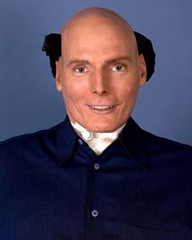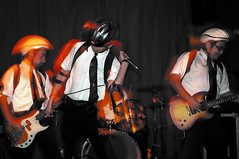
Obviously, the fight against the use of human stem cells is not about science, but rather about the issue of aborting early-stage human embryos, an issue of morals and ethics. A long discussion on this issue with my great uncle, a priest and monsignor in the Catholic Church, on Christmas has made me want to clarify my position on this issue a bit more. But first, a little background on personal experiences that have brought me to where I am.
In the spring of 2002, six members of my residential life team from USC were in a brutal car accident on the Santa Monica Freeway. Stalled in the fast lane behind a car out of gas, they were rearended at high speed. Injuries in the car ranged from bumps and minor fractures to punctured lungs and torn spleens. My good friend R. was paralyzed from the chest down. I spent an interminable, delirious, and nightmarish night in Cedars-Sinai Hospital watching one of the greatest givers of joy and sunshine in my life, a model of goodness and humor, lie motionless on an ER examining table. I watched heavy-handed neurologist prick her sides, checking for feeling. "Feel that? Feel that? Feel that?" "Ow!" Then he marked her with a sharpie. I cried in the waiting room.
When I voted for the California Stem Cell Initiative, I voted for my friend, R. I voted for therapies that might help her walk again. Maybe I left some potential people -- those embryos harvested for research -- out in the cold. Those little balls of cells don't enter into my moral calculus, though.
This was a case where I tried to use the supersimple basis of all ethics: the golden rule. I chose to use the "strong" version of the rule -- not "Treat others as you wish to be treated" but "Treat others as they wish to be treated." The corollary of the strong golden rule is that one should be able to trade places with the person affected by an action one takes. I couldn't trade places with R. if I had voted "No." I couldn't cut off a promising avenue of research because of our cultural hangups about abortion. I wouldn't want to trade places with her if my vote helped defeat an initiative that might cure her/my paralysis.
On the other hand, trading places with an undeveloped embryo is logically impossible. I have an independent mind-body embedded in an environment of friends and work and sights and sounds. An embryo has no sense organs, no mind, and no existence independent of its mother. It's basically an organ of the mother. I can't put myself in an embryo's shoes because it has no shoes.
We must pursue all types of stem cell research -- embryonic, adult, umbilical, etc. -- simultaneously. We must cure my friend R. and hundreds of thousands like her.



